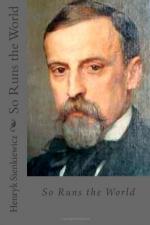But the French writers always had more originality and independence than others, and that regulator, which elsewhere was religion, long since ceased to exist for them. There were some exceptions, however. Balzac used to affirm that his aim was to serve religion and monarchy. But even the works of those who confessed such principles were not in harmony with themselves. One can say that it pleased the authors to understand their activity in that way, but the reading masses could understand it and often understood it as a negation of religious and ethical principles.
In the last epoch, however, such misunderstanding became impossible, because the authors began to write, either in the name of their personal convictions, directly opposite to social principles and ties, or with objective analysis, which, in its action of life, marks the good and the evil as manifestations equally necessary and equally justified. France—and through France the rest of Europe—was overflowed with a deluge of books, written with such lightheartedness, so absolute and with such daring, not counting on any responsibility toward people, that even those who received them without any scruples began to be overcome with astonishment. It seemed that every author forced himself to go further than they expected him to. In that way they succeeded in being called daring thinkers and original artists. The boldness in touching certain subjects, and the way of interpreting them, seemed to be the best quality of the writer. To that was joined bad faith, or unconscious deceiving of himself and others. Analysis! They analyzed in the name of truth, which apparently must and has the right to be said, everything, but especially the evil, dirt, human corruption. They did not notice that this pseudo-analysis ceases to be an objective analysis, and becomes a sickish liking for rotten things coming from two causes: in the first place from the corruption of the taste, then from greater facility of producing striking effects.
They utilized the philological faculty of the senses, on the strength of which repulsive impressions appear to us stronger and more real than agreeable, and they abused that property beyond measure.
There was created a certain kind of travelling in putridness, because the subjects being exhausted very quickly, there was a necessity to find something new which could attract. The truth itself, in the name of which it was done, was put in a corner in the presence of such exigencies. Are you familiar with Zola’s “La Terre”? This novel is to represent a picture of a French village. Try and think of a French village, or of any other village. How does it look altogether? It is a gathering of houses, trees, fields, pastures, wild flowers, people, herds, light, sky, singing, small country business, and work. In all that, without any doubt, the manure plays an important part, but there is something more behind it and besides it. But Zola’s village looks as if it was




